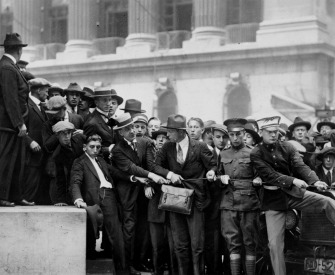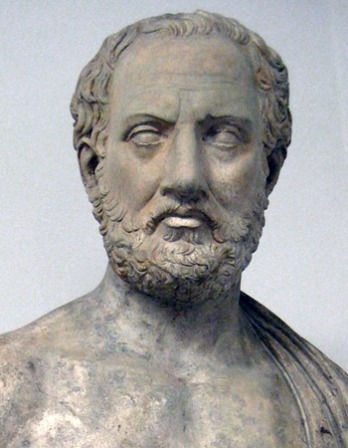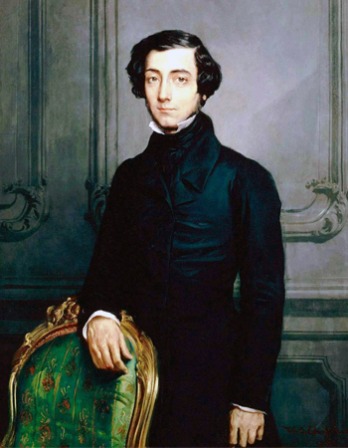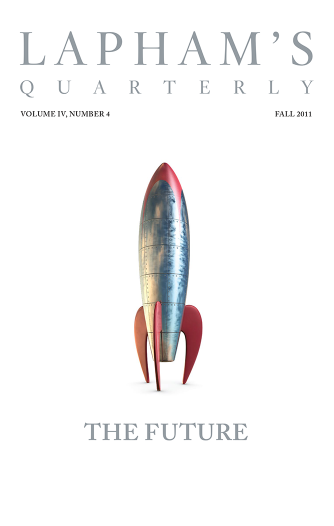The demand that I abstain from political activity is a demand that I renounce the struggle for the interests of the international proletariat, a struggle I have been waging continually for thirty-two years, throughout all of my conscious life. The attempt to represent this activity as “counterrevolutionary” comes from those whom I charge, before the international proletariat, with violating the fundamental principles of the teachings of Marx and Lenin, with infringing on the historical interests of the world revolution, with renouncing the traditions and precepts of October, and with unconsciously, but all the more menacingly, preparing the Thermidor.
To abstain from political activity would be tantamount to ending the struggle against the blindness of the present direction of the Communist Party, which adds to the objective difficulties of the constructive Socialist work an ever-increasing number of political difficulties caused by its opportunist inability to conduct the proletarian policy on a large historical scale.
It would be tantamount to renouncing the struggle against a strangling party regime that reflects the growing pressure of the enemy classes on the proletarian vanguard; it would be tantamount to passively acquiescing in that economic policy of opportunism which is undermining and shaking the foundations of the dictatorship of the proletariat, retarding the latter’s material and cultural progress, and at the same time dealing severe blows at the union of the workers and the toiling peasants—the foundation of the Soviet power.
The Lenin wing of the party has been under a hail of blows ever since 1923, that is, ever since the unexampled collapse of the German Revolution. The increasing force of these blows keeps pace with the further defeats of the international and Soviet proletariat as a consequence of opportunist leadership.
Theoretical reasoning and political experience attest that a period of historical recoil or reaction can follow not only a bourgeois but a proletarian revolution as well. For six years we have been living in the USSR under the conditions of a growing reaction against October and, consequently, of a clearing of the way for the Thermidor.
The most obvious and complete expression of this reaction within the party is the savage persecution and routing of the left wing in the party organization.
In its latest attempts at resistance to the out-and-out Thermidorians, the Stalin faction is living on the chips and fragments of the ideas of the opposition. Creatively, it is impotent. The struggle against the left deprives it of stability. Its practical policy has no backbone, being false, contradictory, and unreliable. The noisy campaign against the danger from the right is three-quarters sham and serves first of all as a screen before the masses for the war of real extermination against the Bolshevik-Leninists. The world bourgeoisie and the world Menshevism have equally blessed this war. These judges have long since recognized “historical rightness” as being on Stalin’s side.
But for this blind, cowardly, and utterly inept policy of adaptation to bureaucracy and philistinism, the position of the working masses in the twelfth year of the dictatorship would be infinitely more favorable, the military defense much stronger and more reliable, and the Communist International would be standing on a higher level, instead of retreating step-by-step before the treacherous and venal social democracy.
The incurable weakness of the reaction headed by the apparatus, in spite of its apparent power, lies in the fact that “they know not what they do.” They are executing the orders of the enemy classes. There can be no greater historical curse on a faction, which came out of the revolution and is now undermining it.
The greatest historical strength of the opposition, in spite of its apparent weakness, lies in the fact that it keeps its fingers on the pulse of the world-historical process, that it sees the dynamics of the class forces clearly, foresees the coming day, and consciously prepares for it. To abstain from political activity would mean to abstain from getting ready for tomorrow.
From a letter to the Central Committee of the Communist Party of the Soviet Union. After Vladimir Lenin died in 1924, Joseph Stalin consolidated his power and organized denunciations of Trotsky, branding him a counterrevolutionary. The year after writing this letter, Trotsky was banished from the Soviet Union. Though he fought the decision—writing that the “policy of the opposition has nothing to do with preparation for an armed struggle”—he made his way to exile in Mexico, where he was murdered in 1940.
Back to Issue






